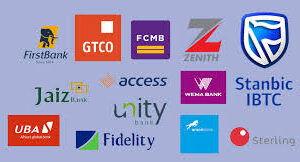In a statement issued on March 28, 2024, the Central Bank of Nigeria (CBN) directed banks to meet a new capital base by March 31, 2026.
Under the new directive, regional commercial banks are required to raise their paid-up capital to N50 billion while national banks are to raise their capital base to N200 billion. Banks with international licenses are now mandated to raise their paid-up capital to N500 billion.
The CBN directive might have been informed by the massive depreciation of the naira which has depleted the dollar value of the paid-up capital of Nigerian banks and made it difficult for them to handle complex international transactions.
For instance, the N500 billion capital base requirement for banks with international licenses is a scant $318.4 million at the current official exchange rate of N1,570 to the dollar. Consequently, many banks are operating with capital base of less than 200 million dollars.
The CBN directive is grounded on the need to stabilise Nigerian banks against domestic and external pressures which could throw them off balance and rock the nation’s economy.
However, the apex bank itself knows that banks would undergo enormous stress in raising their capital base to the new level. The CBN inadvertently acknowledged the difficulty in meeting the new capital base when it engineered the merger between Unity Bank, a weak medium size bank, and Providus Bank, a small but stronger firm in the industry.
As the capital base of Unity Bank deteriorated, CBN facilitated a merger that would not only stabilise it but also prepare it for the new capital base requirement.
Banks are currently toiling to meet the new capital base. The capital market is their main target. Guarantee Trust Bank (GTB) is sourcing for N400.5 billion to meet the new capital base. Zenith Bank with its bumper capital base of N1.9 trillion is sourcing for N290 billion.
Access Bank is sourcing for N351 billion, while Fidelity and FCMB are sourcing for N127 billion and N110 billion, respectively, for the same purpose. To achieve the new capital base, banks have drawn up challenging strategies to capture domestic and international investors.
Some are on road shows to attract foreign investors, while at the same time leveraging on relationship with suppliers and contractors by giving them incentives to invest in their shares. The banks have equally leveraged on the personal networks of their staff by handing them challenging targets to meet.
The problem, however, is that though the new capital base is absolutely necessary, there are fears that it is badly timed.
The depreciation of the naira and spiraling inflation have pushed millions in the lower end of the middle income bracket perilously close to poverty level. Few are left with enough disposable income to buy shares.
That factor was indubitably illustrated some weeks ago by the performance of Fidelity Bank’s rights issue. The bank did not tell investors the reason for extending the issue but merely announced that the Security and Exchange Commission (SEC) has permitted it to extend the issue to August 12.
The only explanation for offer extension whether rights issue or initial public offer (IPO) is that it is under-subscribed. It is, therefore, obvious that the Fidelity Bank rights issue was under-subscribed.
Many other offers might suffer the same consequence because of the poverty in the land.
Another factor militating against the raising of funds in the capital market is the current high yield in federal government debt instruments like Treasury Bills.
The average yield in a fixed income instrument in the NGX is slightly above 23 per cent. Banks’ shares hardly yield that much. The high yield in fixed income instruments has crowded out the interest of small investors in banks.
Most of those investing in the banks’ shares are major shareholders with vested interest in the banks. They are scrambling to increase their stakes in the banks.
The indefensible hiking of the monetary policy rate (MPR) by the CBN has inflicted incredible damage on the banks’ recapitalisation process. It is robbing them of easy access to cash for recapitalisation even as the MPR hike failed to bring down inflation rate.
Nigeria’s faltering foreign reserve is another factor working against the banks in the scramble to meet the new capital base.
Foreign investors are reluctant to invest in the banking recapitalisation process because of the difficulty in exporting returns on investment from Nigeria. Nigeria’s low reserves tie down returns on investments.
Blueprint believes that the directive by the CBN for banks to recapitalise is absolutely necessary to stabilise Nigeria’s banking system.
We enjoin CBN to stand its ground and look for ways of engineering more mergers and acquisitions that would result in fewer but stronger firms in the industry.
